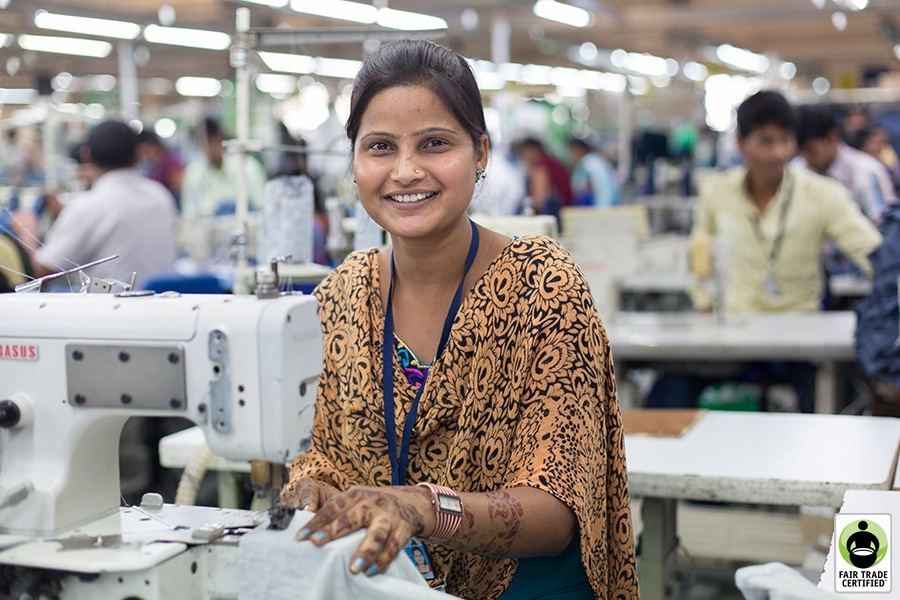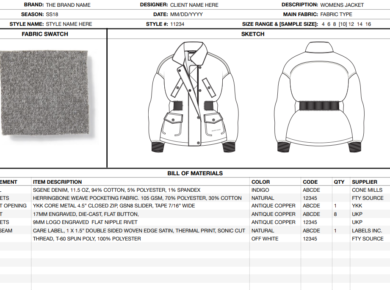Over the last ten years or so, there has been something brewing in the offshore manufacturing industry. The real spark occurred in 2013, when a building collapsed in Dhaka, Bangladesh. This building contained clothing factories, a bank, shops, and apartments. About 1,130 people died, with over 2,500 injured. This is known as the Rana Plaza disaster.
The collapse of the building was not the real issue. The real issue was why it collapsed.
It turned out that the day before the collapse, cracks were noted in the structure, resulting in the bank and shops on the lower floors being closed for business. It was known that the building was potentially unsafe. However, the garment factories did not close despite the structural cracks. To cut a long story short, despite the cracks being found, the garment workers returned to work the next day and the building collapsed during the morning shift.

It was later found that the upper floors containing the factories were built without a permit, and that the building was designed for shops and offices, not factories. It was not strong enough to bear the weight of the machinery used in garment manufacturing. It also turned out that some of the garment factory managers threatened to withhold wages of workers, whom did not return to work the day of the collapse.
Half of those killed were woman and children (looked after by the nurseries in the factories). Now disasters like this happen in less developed countries regularly, with higher death tolls, and often do not make the headlines.
However, this one was different!
It turned out that the garment factories produced for major Western brands, including Benetton, Mango, Walmart, and Primark (among others). Now this is a headline.
People started to question how such well-known Western brands could produce in unsafe factories, that essentially treated their workers like some type of easily replaceable commodity.
Surely these brands were aware of the conditions?
People also started to become aware that this disaster was one of a few that happened in Bangladeshi clothing factories, that produced for major Western brands.
As mentioned above, this created a spark, which soon became a firestorm. Consumers started to hold the big brands accountable for such disasters.
- Why were the brands not auditing factories to ensure safety compliance?
- Why were the brands not ensuring social compliance?
- Why were the brands knowingly subjecting foreign factory workers to hazardous conditions?
These consumers soon demanded sustainable and ethical manufacturing processes and procedures.
The next question that arises is what does sustainability and ethical manufacturing mean?
Unfortunately, there is no set definition. We think the best general definitions are as follows.
Sustainability
Manufacturing in such a way that the environment is protected as much as possible. This entails using the least amount of harmful chemicals and natural resources in the production process, and improving production efficiency in order to manufacture a given product using the least amount of resources.

Ethical Manufacturing
Ensuring that everything in your supply chain exceeds the minimum statutory requirements of the country you are doing business in. This applies specifically to people. Ensure the price you pay allows workers to be paid in excess of the minimum wage allowed. Ensure working hours are reasonable and are less than the maximum allowed. Ensure that your supplier’s safety standards exceed the minimum standards. Essentially, workers should be safe and earn a decent living wage.
There are a number of Ethical manufacturing / Sustainability certification standards and organisation out there, such as Greencircle, World Fair Trade Organization (WFTO), Worldwide Responsible Accredited Production (WRAP), Fairtrade International, Flocert, Ecocert, Fairwear Foundation, Rainforest Alliance, Goodweave, Social Accountability International (SAI), Global Organic Textiles Standard, Sedex Members Ethical Trade Audit (SMETA), etc.

In fact, there are so many certification and standards for different industries, it is often hard to keep track of them.
Some are obviously more respected and well known than others.
Sourcing Playground is working with the most respectable and trustworthy of these key industry certification bodies to ensure that any supplier certification claims can be trusted and verified. (WFTO, WRAP, SAI among others).
Sourcing Playground is looking to create trust and transparency to help make it easier for buyers make more informed sourcing decisions, which will result in them choosing better, compliant suppliers.
Buyers can easily see which suppliers have social, ethical & sustainable credentials.
Sourcing Playground is the only platform that is committed to achieving a high level of sustainable and ethical manufacturing practices amongst our members.
We intend to promote this in a very active way.
Sourcing Playground intends to constantly educate buyers and suppliers on sustainable and ethical manufacturing processes, as these have benefits for both parties.
For suppliers, these benefits include;
- Cost reduction. To many seems counter intuitive, as they need to pay for accreditation. But there are measurable cost reductions. For example, installing energy efficient lighting in a factory reduces energy costs.
- A higher chance of getting orders. As pressure grows on buyers to produce with certified suppliers, certification gives suppliers a much higher chance of getting an order, when the buyer is doing supplier comparisons. Certified suppliers will stand out. Certification by its very nature, gives a buyer an impression of a more reliable supplier.
- Increased efficiency. By reviewing your factory’s processes, it is very likely that inefficiencies will be uncovered, and improved upon. This results in further cost reductions.
- Exceeding local regulatory requirements. Which means that there is almost zero chance of your operations being disturbed due to non-compliance with local laws. If operations are disturbed, money is lost. As an example, two years ago, hundreds of dyehouses in Fujian, China, were shut down due to pollution. Not only did some close for good, but many could not produce for months. This had a massive knock on effect on the entire supply chain. The financial losses were huge for both suppliers and buyers.
- Tax Incentives. Many countries offer tax incentives to factories or businesses that are certified as sustainable. As a result, certified suppliers pay less tax. Less tax means more profit.
Suppliers will need to be educated about these benefits.
The reason many suppliers don’t get accredited, is because they see it as a large cost, which will result in price increases for their products, making them noncompetitive.
However, in most cases, if done correctly, costs will be reduced, resulting in no price increases, or at worst minor ones. This is probably the key area of educating suppliers that needs to be addressed.
As pressure grows on buyers, they will not have an issue paying a minor upcharge for accredited suppliers.
We believe that by doing this in an honest and transparent way, we will exert a soft influence on suppliers to get accreditation.
For buyers, the benefits include;
- More customers. Customers are looking for sustainable and ethical products in greater numbers overall. This is especially true amongst the younger generations. According to Nielsen, 72% of respondents in Generation Z, the post-Millennial generation, are willing to pay more for products coming from companies that are committed to sustainability. See here. Although this study is a few years old, the numbers are on the increase, and will continue to rise. A simple Google search of Nielsen study sustainability, will bring up a large number of studies that show this trend.
- Increase profits. Customers are willing to pay more for products that are certified as sustainable and ethical, as mentioned above. So not only will buyers attract more customers, but these customers are willing to pay more.
- Supplier innovation. Certified suppliers will tend to be more innovative than uncertified ones. While going through the certification process, suppliers are forced to look at existing methods, which might be inefficient, or do not promote any type of innovative thinking. Also, the restrictions placed on certified factories, often requires some out of the box thinking, as certification requires suppliers to change non-sustainable practices to comply with the certification.
- More transparency. There was a trend a few years ago, where suppliers simply purchased certification, without actually being audited and certified, or simply forged documents to show to their customers. This was very common in China, and extremely hard to verify. To compound this, most buyers were not really interested in verifying, as the sustainability and ethical manufacturing movement, had not gained enough traction to pressurize them to actually verify claims. Although this still happens, Sourcing Playground will ensure all certification will be verifiable by the appropriate certification agency, via our platform. Buyers will be guaranteed that they are dealing with a certified supplier, and not face the risks of dealing with a fraudulent one. By being able to verify suppliers on Sourcing Playground’s platform, buyers are assured they are dealing with suppliers which are not misrepresenting themselves;
- A better image for your brand. As mentioned, more and more consumers are wanting sustainable products. Therefore, if you or only sourcing from certified suppliers, your brand’s image will improve in the eyes of consumers. This will further drive sales and profits.
- The knowledge you are dealing with an ethical supplier. This advantage might be slightly out of scope from a purely business perspective. But, that’s the whole idea behind the move towards sustainable and ethical sourcing. To ensure factory workers are treated fairly, are paid a living wage which enables them to look after their families, are not exposed to dangerous conditions, and have access to many of the things we in the West take for granted, such as healthcare, education, adequate housing, etc.
This article may put things into perspective, Australian fashion brand workers earning 51 cents an hour.
The “feel good” factor can have a major motivating effect on your employees, and therefore your business as a whole. It can also help you attract more talent, as the number of people that care about these issues is growing. Many look for this in a potential employer. They want to work for a company which cares.
Happy Sourcing!
If you’d like to find suppliers and manufacturers click to request a demo to get access to Sourcing Playground’s online platform.






